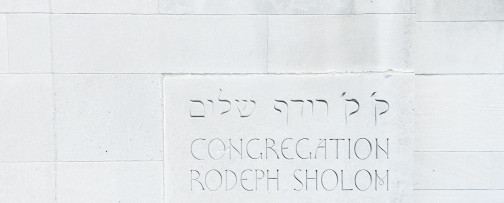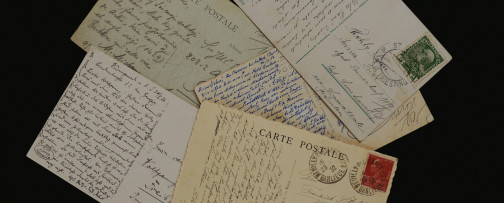Writing a eulogy is a big undertaking. Public speaking is hard to begin with, but in the case of doing a eulogy it can be even tougher. It’s also a highly emotional time in someone’s life when they have lost a loved one and are planning a funeral. The moment has come to send them off in a positive, loving way. If this is something you are tasked and privileged to do for a family member, friend, or co-worker, then sitting down to write one can be overwhelming. You want to have exactly the right stories and memories in the eulogy to honor that person at their memorial in the right way.
We’re here to give you some guidance on writing a eulogy that is a heartfelt, well-constructed remembrance for the person you’re honoring. After all, a eulogy is a celebration of some of the best qualities of a person. You want that moment to be special. Unique. Memorable. Let’s explore how to write a eulogy so that you’ll be prepared to make what you say the meaningful tribute you want it to be. And if you're struggling with what to write, look no further with these eulogy examples and tips.
Alternatively, why not use our Eulogy Template.
What is a Eulogy?
A eulogy is, simply put, a funeral speech that you give at a memorial to honor the person who has died. Webster’s Dictionary describes it as “high praise in honor of the one deceased.” And it’s true. Most eulogies are touching stories designed to inspire fond memories about the person who has died.
A eulogy can include a funny story or memories about a loved one, a kind of biographical history of their life, or even a collection of cherished time spent together. It can describe what the person was like and the things they loved to do. It can acknowledge individuals and even organizations that meant most to them. Often a eulogy is given at the wake before the burial service, but also at the funeral service, or even at a special memorial gathering. Many times multiple people will give a eulogy for the person who is being honored.
How Long Should a Eulogy Be?
This is a tricky question to answer. Of course it’s up to the person who is speaking to get across everything they want to say in the moment to honor the person they love. In looking at a eulogy format, most tend to be around three to ten minutes long. Honestly, if you go over the ten-minute mark you run the risk of people not paying much attention to what you are saying.
The written word count of a eulogy should fall somewhere between 500 to 3000 words. It generally takes a person five minutes to say 1500 words speaking at an average rate. So that gives you some idea of word count and the actual time it will take to make the eulogy speech.
How to Start a Eulogy
In sitting down to write a eulogy, it’s helpful to just brainstorm a list of ideas of what you might want to say. Jot down traits of the person you want to highlight, lists of their accomplishments, or stories about their life. This will help to get you started.
Next, you’ll want to move on to a more formal eulogy outline of what you want to say. The outline for how to write a eulogy will look something like this…
- Opener
- Personal story/biography/mention special people
- An inspirational quote or poem
- A heartfelt ending
You'll likely need at least a couple of hours to write a proper eulogy. Draft it, then set it aside for a bit and revisit it to see if there is anything you want to edit or change. It can also helpful to have someone you trust read the eulogy after you have written it. A pair of fresh eyes can help you make sure it’s everything it needs to be.
Sometimes people want to inject a bit levity or humor into a eulogy, and that can be fine. Just make sure it’s appropriate for the audience and circumstances of the wake or funeral service. A little laughter through tears is a wonderful way to remember someone you love. For example, let's say you have a funny story about how your grandpa used to take you to baseball games every summer, and he'd let you eat all the ballpark junk food you wanted. Tell it. Heartfelt and honest stories are the makings of a eulogy to be remembered.
How to End a Eulogy
The ending of your eulogy should be simple. Addressing the person who has died with a phrase such as, “We will miss you” or “Rest well on your journey, my friend” can be a good way to wrap up. You can also end with an inspirational quote if that feels better to you. It can be something from scripture, a poem the person would have liked, or a quote from a respected leader.
It's a good idea to write your closing line and practice it, but you might also feel moved in the moment to say something at the end that comes directly from your heart. That's fine too. When you speak from a place of sincerity, everyone attending the service will feel it. Don't be surprised if just the right ending occurs to you as you wrap up the eulogy.
Do’s and Don’ts of Writing a Eulogy
DO be honest and positive.
DO include heartwarming stories of the person’s life.
DO consult with friends or family to get ideas when writing.
DO try to keep it to under ten minutes so you'll have people's full attention.
DON’T overuse humor.Some is fine, but too much can feel wrong in the moment.
DON’T worry about being emotional. It’s expected.
DON’T overthink it and remember, it doesn’t have to be flawless. It just needs to be from the heart.
Farewelling is all about celebrating a beautiful life, beautifully. Knowing how to write a eulogy is a part of keeping that person’s legacy alive and well. Write it with gusto. Deliver it with love and respect. And above all, know that whatever you write doesn’t have to be perfect. To craft a truly great eulogy, just follow the guidelines above. Combine a bit of structure with a dash of personal style, and you'll have a fitting tribute to share with friends and family.
Our Farewelling Editors are constantly reviewing and curating resources to help you with your planning. We may receive a small commission from any purchases made through the links.
Recommended Products
- Funeral Guest Book & Memory Card Set — Elegant guest book with matching memory cards for funeral and memorial services.
- COLIBROX Cremation Funnel Kit — Stainless steel funnel kit designed for carefully transferring ashes into urn jewelry and keepsakes.
- Skylight Digital Picture Frame — A touchscreen digital frame that lets family share photos by email — perfect for displaying a slideshow of cherished memories.








